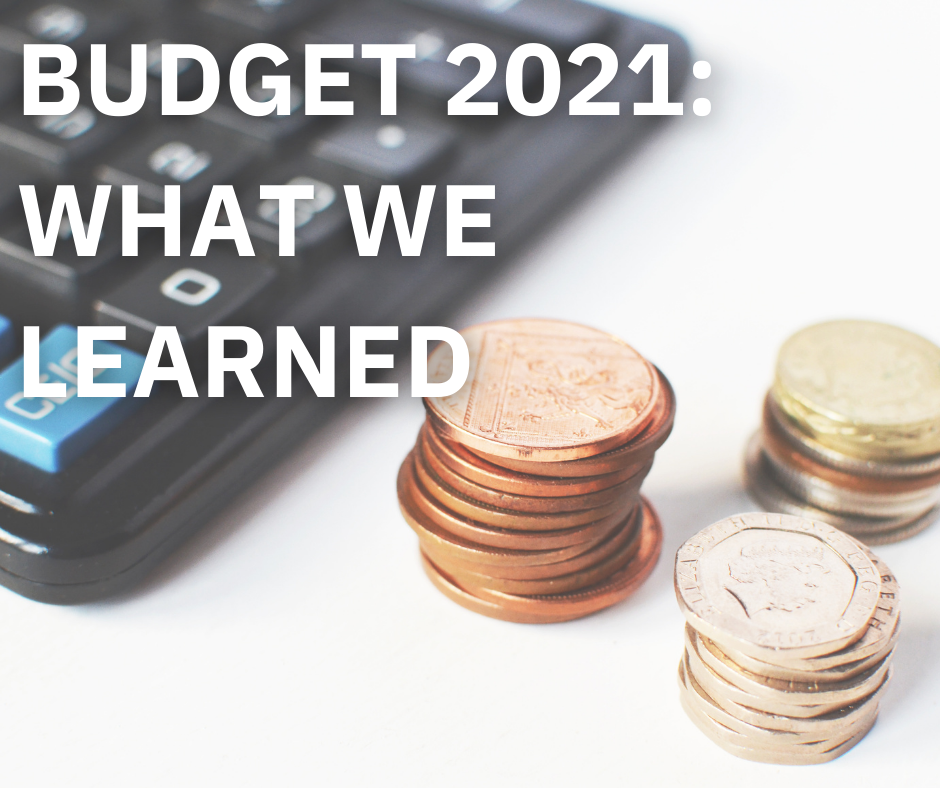We previously spoke about Budget 2021 in our recent blog post, “Budget 2021 reveals increase in taxes: Think Tanks warns that British households may have to pay up to £3,000 more”, where we discussed how British households and businesses may be negatively impacted by new regulations and policies implemented by the UK government.
In the following list, we will highlight some of the major changes that may affect you as an individual and your business as well.
- Universal Credit
If you work and receive universal credit, you are likely to be affected by the taper rate, as it is formally named. As you earn more money, your universal credit payment will be lowered.
63p is taken from your benefit payment for every pound earned (sometimes over a basic amount of earnings known as the work allowance).
Mr Sunak has reduced this to 55p, allowing individuals to keep more of their earnings. The same is true when the labour allowance is increased.
Around two million people would be better off depending on their circumstances, but another two million will be denied benefits because they either do not work or do not earn enough.
- Increase in cost of living
There is plenty of evidence of rising costs in stores and on bills, with government forecasts predicting a 4% increase in the cost of living over the next year.
Fuel duty has been frozen for more than a decade, and it will remain so for at least another year, while drivers are slammed by increased gas costs.
Approximately 60% of the cost of fuel is tax, which is a combination of fuel duty and VAT. However, there were no mechanisms in place to help homeowners cope with soaring gas and electricity prices.
- Minimum wages increased
Minimum-wage workers will see a hefty salary increase in April. The hourly wage for people aged 23 and up, known as the National Living Wage, will increase by 6.6%, from £8.91 to £9.50.
The minimum pay for younger workers will also be increased.
If they also receive universal credit, the taper rate described previously may affect them as well.
When the salary freeze imposed during the pandemic is removed in April, public sector employees will receive a pay raise as well. It will be determined at a later point how much this amounts to and whether it is greater than the growing cost of living.
- Alcohol Duty
Drinking is becoming more costly, with pub chains predicting that rising salaries and energy costs would result in significantly higher pint prices.
Mr Sunak, on the other hand, unveiled a reform that he described as "the most dramatic streamlining of alcohol tariffs in 140 years," which will take effect in February 2023.
This will result in higher-strength beverages costing more, but reduced duty on drinks like sparkling wine and draught beer costing less.
In contrast to what happens frequently on Budget Day, there will be no sudden hike in alcohol duties.
- Tax bills
Two major tax choices had already been announced and implemented before Budget 2021 that could affect your money in the future years
Mr Sunak stated in the last Budget that the income tax thresholds will be fixed for five years at April 2021 levels (although Scotland has different levels). As a result, wage increases will force more individuals into higher tax brackets.
Employees, businesses, and the self-employed will all pay 1.25% more for National Insurance (NI) from April 2022 to support social care, the UK government stated in September.
- Crime
In order to tackle the growing number of domestic crimes mainly against women and in an effort of improving police enforcement services, Mr Sunak asserts that the budget will fund a goal of hiring 20,000 more police officers.
£2.2 billion will be used to fund courts, prisons, and probation services, including £500 million to clear the court backlog.
Additionally, neighbourhood crime, reoffending, county lines crimes, violence against women and girls, victims' services, and a better response to rape cases are among the programmes being implemented as well.
- Debt & borrowing
This year, underlying debt is expected to reach 85.2% of GDP. In 2022-23, the debt will reach 85.4%, before peaking at 85.7% in 2023-24. According to the forecast, the debt is estimated to drop from 85.1%to 83.3%.
Over the course of this parliament, total departmental spending will rise by £150 billion, or 3.8% per year in real terms.
- Transport
Domestic flight tickets may be cheaper, while extremely long-haul trips may become more expensive. This is due to changes made by the chancellor to Air Passenger Duty, a fee paid by airlines but ultimately supported by passengers via the price of their tickets.
Mr Sunak revealed that £2.6 billion will be spent on enhancements to more than 50 highways, including more than £5 billion for road maintenance - enough to fix one million extra potholes every year.
In addition, more than £5 billion will be spent on bus, bike, and pedestrian upgrades.
We at Persona Finance are ready and equipped with experienced accountants who provide essential remote accounting services for all individuals and business types. For more information on our services or for other business and accounting queries, please contact Persona Finance at [enquiries@personafinance.co.uk]



